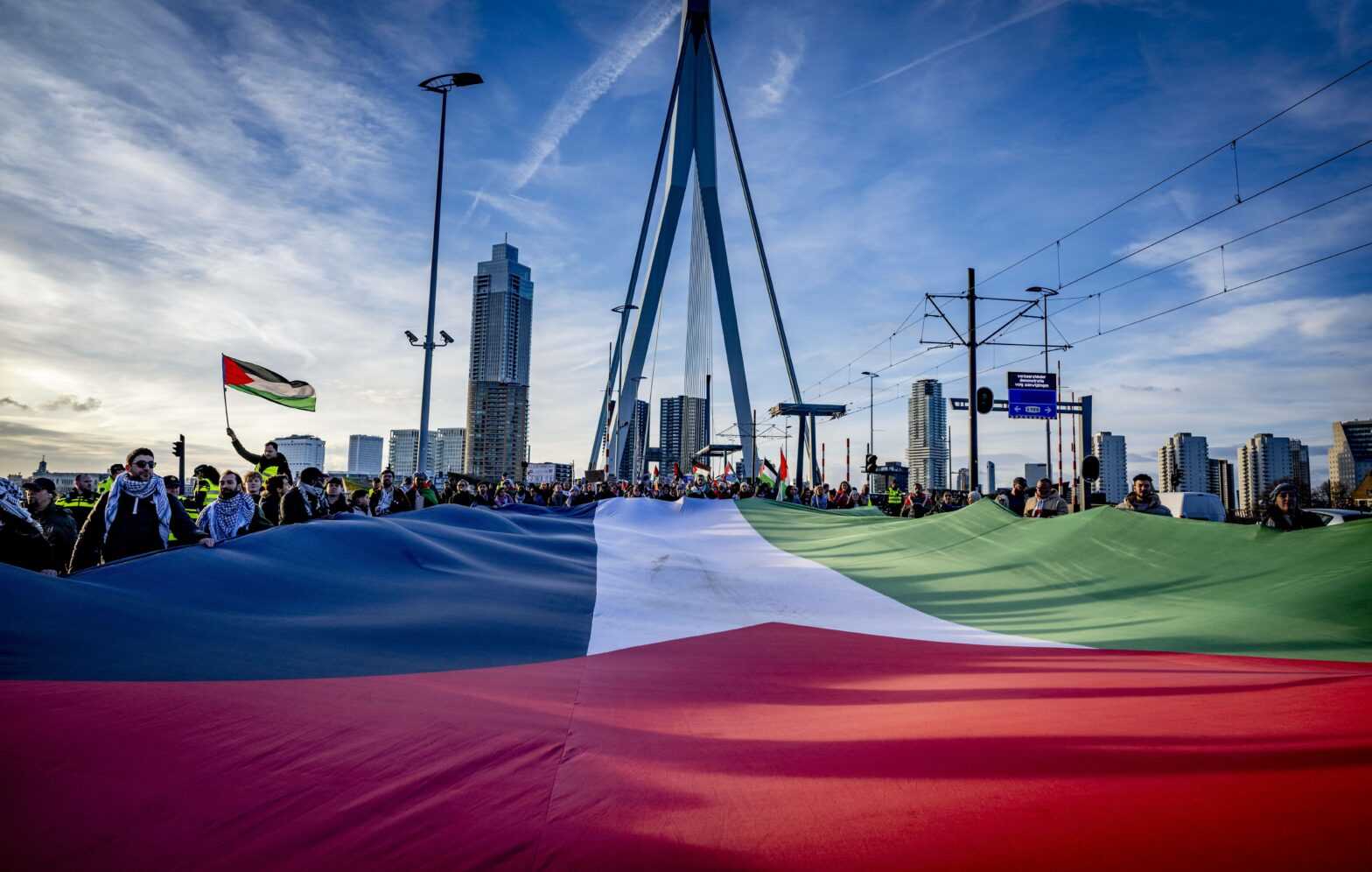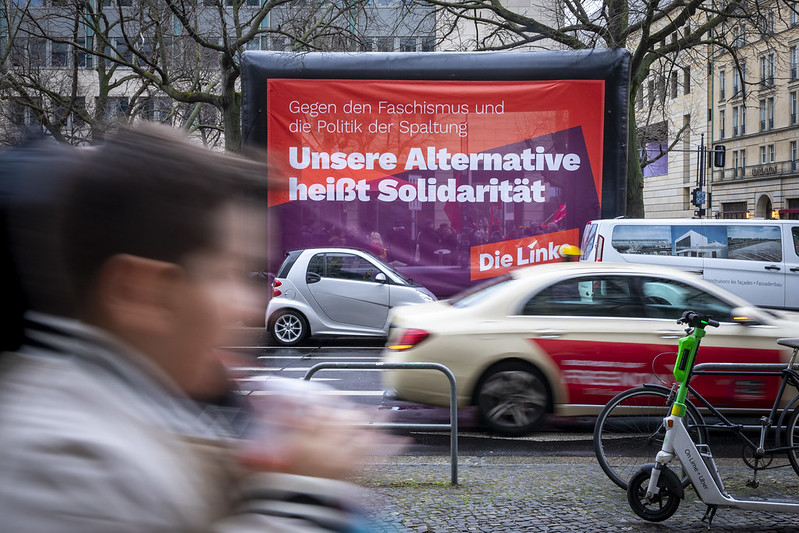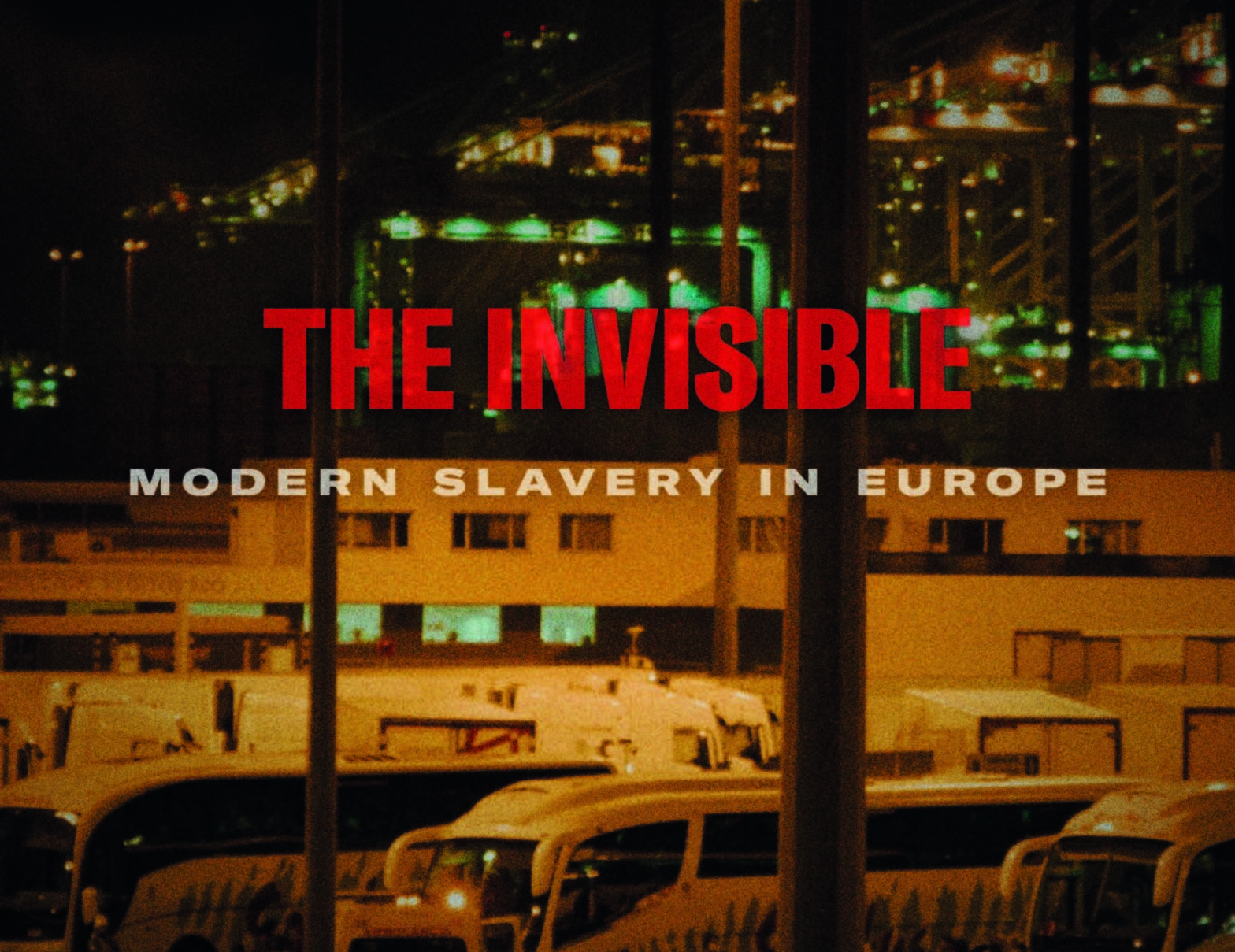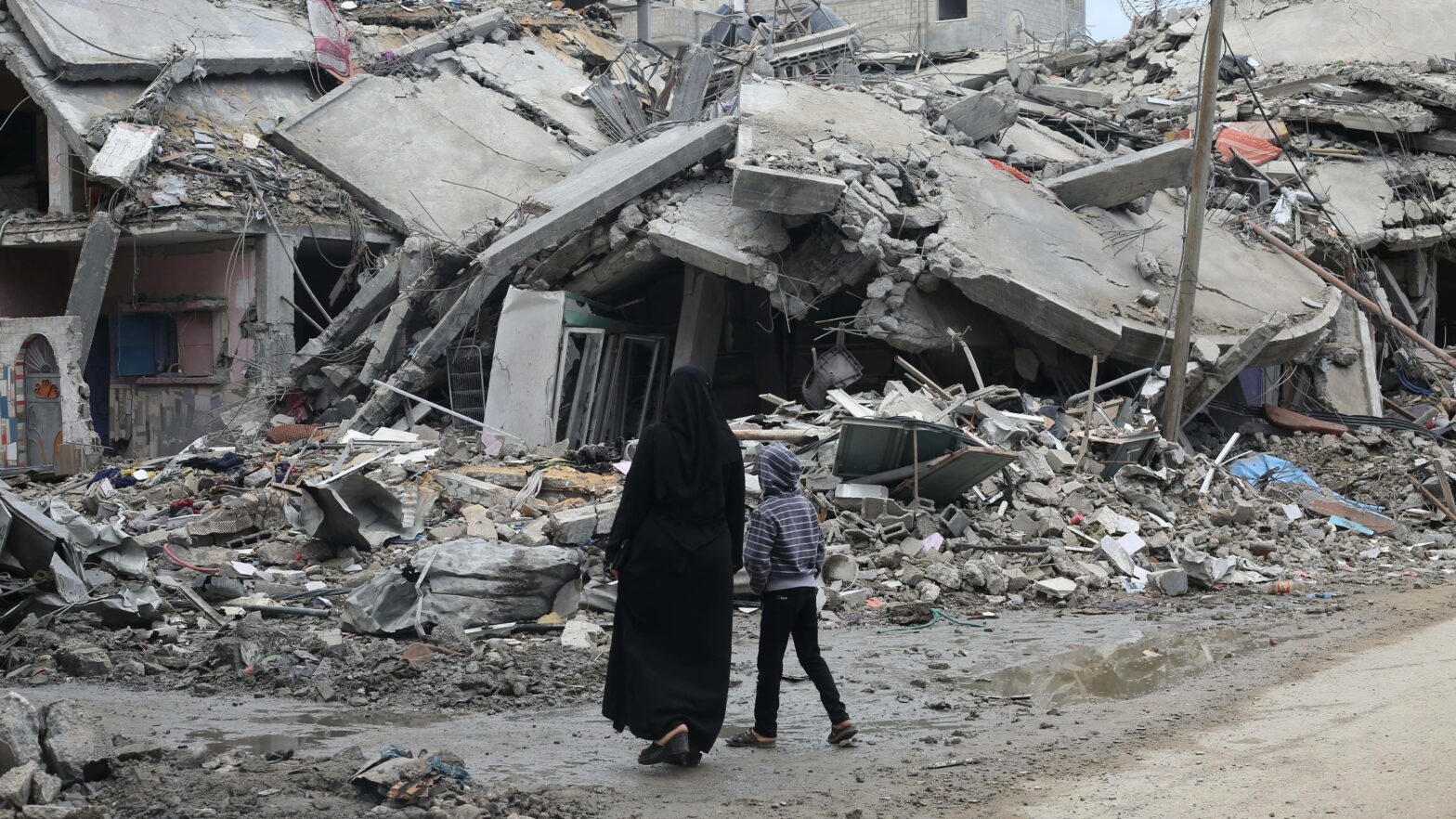Share Twitter Facebook Email Copy URL
This article is part of our series dedicated to the 75th anniversary of the Universal Declaration of Human Rights.
Human rights and left internationalism: from humanitarian solidarity to a new popular convergence
The effectiveness of international solidarity depends today, more than ever on the popular and institutional instruments and mechanisms for its materialization. Among these instruments, the Universal Declaration of Human Rights has become the heart of a humanitarian solidarity that, however, does not yet decant into lateral, complementary, decolonial and reciprocal solidarities that could enhance the actions and struggles of movements and social organizations throughout the world. How then could we, in the light of the 75 years of the Universal Declaration of Human Rights, think about a transition from a humanitarian solidarity based on the verticality and hierarchy of cooperative relations to a popular solidarity based on the convergence of movements in struggle?
The fall of the Soviet bloc and the triumph of neoliberalism towards the end of the 1980s will be a decisive milestone for the transition from a politicized international solidarity, marked by the interests of the cold war and by the political and ideological priorities of the opposing blocs, towards a “humanitarian” solidarity that will find its main point of support in liberal legality and in the legal-political discourse of human rights.
If during the 70s international solidarity was understood as conditioned to the chess of the geopolitics of the Cold War, and from the point of view of the socialist bloc as the materialization of solidarity between the proletarians of all peoples in order to promote revolutionary scenarios and uprisings against capital throughout the world, from the 90s and on, as Luc Boltanski explains, the new “humanitarian solidarity” founded on the discursive constructions of liberal law will turn towards a “politics of mercy.”[1]
Once the practical usefulness of Polemarco’s argument was discarded, according to which justice consisted in doing good to friends and evil to enemies, the legitimacy of the liberal order would have to be consolidated on the idea of a universal justice whose realization depended on more or less unilateral action of the “fortunate” part of the world to the aid of the “unfortunate” part of it. That is, the action carried out by the societies that reached a hegemonic position at the end of the Cold War in aid of what at that time would be known as “the third world”: an indistinct mass of underdeveloped countries and societies in which it was necessary to guarantee, through a well-defined idea of “development” and “dignity”, the prevalence and flourishing of the capitalist economic system.
According to this logic, the lack of development was at the origin of all the evils and all the suffering of “third world” societies. The absence of democratic institutions, the fragility of productive systems, the inequality in the distribution of wealth, and the corresponding scenarios of violence and extreme poverty, far from being considered as the result of colonialist occupations and imperialist policies of extractivism and dependency, were considered as the result of the abstract entity of “underdevelopment”, which had to be contested through international cooperation and humanitarian action.
In this sense, the political dimension of popular solidarity, which took as its starting point the denunciation of the injustices that were at the root of extreme violence and poverty, was overshadowed by a “not-adversarial-form” of solidarity that had a fundamental objective: to “depoliticize” solidarity for the benefit of the idea of an “altruistic action” that, in addition to its function of legitimation, would deny the systematic responsibility of the imperialist powers in the production of scenarios of violence and inequalities in the “third world”.
The implementation of this apparent depoliticization of solidarity, based on the instruments of a politics of mercy, then sought to appropriate the suffering of the people, to make it an argument in favor of the political project of consolidation of capitalist hegemony. The humanitarian point of view then established links of inequality between the different terms of a hierarchical solidarity – the fortunate and the unfortunate –, through which relations of domination were perpetuated. In Boltanski’s words, the secret of the politics of piety lay in “its hidden alliance with the social order; its ability to unite the dominated, who seek in a cowardly way to soften the hearts of their masters, and the dominant, who feign tender-heartedness in order to obtain support”[2]
These new logics of humanitarian solidarity will also build a system of distinction and discrimination of the “unfortunate” deserving humanitarian aid. First, this type of solidarity will privilege those “unfortunate” who do not accuse or denounce, that is, those who gratefully accept the aid of the powerful without pointing out the root origins of their misfortunes. Secondly, the “good unfortunates” are the one who does not make concessions with the “enemy”. If a people autonomously decide on a political option or an economic model contrary to the demands of neoliberal power, solidarity is then transformed into embargoes, trade blockades and other sanctions, no matter how dramatic the consequences of subjecting entire peoples to the hunger, misery, and death. Finally, the “good unfortunates” are those who suffer at a sufficient distance to prevent uncomfortable questions from being asked. If perhaps the unfortunate ones, aspiring to a better life, decide to appear “in person to invade the space of those more fortunate than them and with the desire to mix with them, to live in the same places and to share the same objects, then they no longer appear as unfortunate and, as Hannah Arendt says, are transformed into ‘les enragés’”[3]
From this classification exercise, and its materialization in political decisions and actions, it becomes evident that, behind the argument of selfless solidarity, an instrument of government and control of the “unfortunate” is hidden. This type of solidarity has thus constructed a “veil of false consciousness” that, while convincing members of “fortunate” societies of its good intentions, ensures the obedience and conformity of members of “unfortunate” societies who see humanitarian solidarity as benevolence and not as the implementation of a sophisticated mechanism to preserve the status quo.
In this same sense, a recurring correlate of the political intentions of humanitarian action is its ineffectiveness in terms of the problems it aims to solve. Addressing them as causes in themselves and not as consequences of deeper structural problematics and asymmetric geopolitical relationships, consciously or unconsciously, most of the time humanitarian activism wastes astronomical sums on palliative actions that, by ignoring the true root of the problems, are incapable of proposing adequate solutions. It would seem that the resources of cooperation and humanitarian are usually oriented to finance the salaries and lifestyle of humanitarian staff and the entire machinery of modern soteriology, according to which the unfortunate can only be saved by the good will of those with a better luck.
On this question, Depaul Baku, volunteer of the Goma Actif Collective in the DRC affirms: “NGOs have a lot of means, but a lot of funding ends up on staff. They have to pay expatriates to show people how to wash their hands for example, which for me is super strange. It is a small thing that should be implemented by small Congolese organizations. We don’t need to pay somebody $5,000 to show people how to wash their hands. NGOs spend a lot of money on staff, while we volunteers focus on helping people in difficulty”[4]
Without delving into the criticism of things that are more than obvious, all the above leads us to question ourselves about how the UDHR and other instruments could lead us to other forms and practices of solidarity and find the way to rediscover a popular solidarity that is aware of the root of the injustices that engender violence, poverty, and inequalities throughout the world. In this sense, the challenge of a new internationalist popular solidarity must take on the challenges of declining human rights and other instruments of international solidarity into a lateral, decolonial, reciprocal and complementary form of action.
The counterweight to an intentionally depoliticized solidarity consists precisely in a conscious repoliticization of existing relationships between social movements, popular and progressive sectors from around the world around the common goals of dignity and social justice. The conscious repoliticization of solidarity consists of the definition of common political objectives and agendas as guiding principles of solidarity actions. That is, amid the multiplicity of local political contexts and objectives, it is important to promote a global and collective reflection that allows us to find consensus on the fundamental dimensions and priority actions of international progressivism. This exercise also requires the multiplication of channels of interaction and mise in relation to progressive movements and sectors isolated from each other. Overcoming isolation means launching the emergence of organic popular solidarities, much stronger because they sink their roots in the shared experience of struggle against oppression.
In the face of a vertical and paternalistic humanitarian solidarity, it is necessary to build a lateral and complementary popular solidarity, which firstly does not act “in the place” or “on behalf of”, but “together with”, and which, secondly, that does not intend to replace local actions and struggles, but rather to complement and strengthen them. The complementarity, openness and horizontality of internationalist popular solidarity depends in this sense on its reciprocal character. It is in this sense that the construction of authentic links of international solidarity must be crossed by the reciprocal circulation of experiences of struggle, of accumulated knowledge, strategies and instruments that can be appropriated and adapted by popular movements in all corners of the world to strengthen their own struggles.
Every corner of the world can be a small geography of the fight for life. From the place that has been given to us, it is essential to look at other places and learn from them. The example of the Zapatista communities regarding the attitude of laterality and reciprocity in the creation of bonds of solidarity is exemplary: Tell us your history, no matter how big or small. Tell us your history of resistance and rebellion: tell us about your pain, rage, and your “no’s” and your “yes’s.” Because we Zapatista communities have come to listen and to learn the history that exists in each room, house, neighborhood, community, language, and the ways that you do and don’t do things. After so many years, we have learned that in each act of dissidence, rebellion or resistance, there is a clamor for life”.[5]
Finally, and in addition to everything we have said so far, it is imperative that the ties of international popular solidarity be built on the foundations of the decolonization of cooperation ties. The strongest and most lasting links are those that deepen all the struggles in all corners of the world, they are those that are born from the understanding and recognition of different ways of life and different forms of oppression to which they are subjected. This recognition requires, in turn, solidarities that are conscious of the global logics of privileges and capital accumulation, and consequent actions that do not reproduce, but rather interrupt, the repetition of the bonds of domination.
Esteban González Jiménez has a PhD from the University of Paris 8 and the Center for Research in Modern European Philosophy at Kingston University (London). He is a researcher at the Research Groups in Popular convergence for epistemic justice (Colombia) and Mondes Caraïbes et transatlantiques en mouvement (FMSH/CNRS France).
[1] Luc Boltanski, La souffrance à distance : morale humanitaire, médias et politique, Paris, Métailié, 1993, pp. 16-17.)
[2] Luc Boltanski, La souffrance à distance : morale humanitaire, médias et politique, Paris, Métailié, 1993, p. 159
[3] Ibidem.
[4] Bashizi, Arlette. We try to set examples’: Meet the local activists feeding DR Congo’s war-displaced. The new humanitarian, 11 April 2023. In: https://www.thenewhumanitarian.org/photo-feature/2023/04/11/drc-youth-ngo-providing-aid-m23-displaced
[5] «Apenas 500 años después » Palabras de los pueblos Zapatistas. Madrid, agosto 13 de 2002. In: https://enlacezapatista.ezln.org.mx/2021/08/17/only-500-years-later/
This article is part of our series dedicated to the 75th anniversary of the Universal Declaration of Human Rights.



